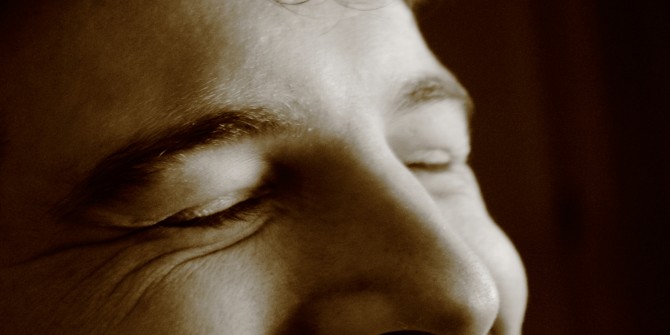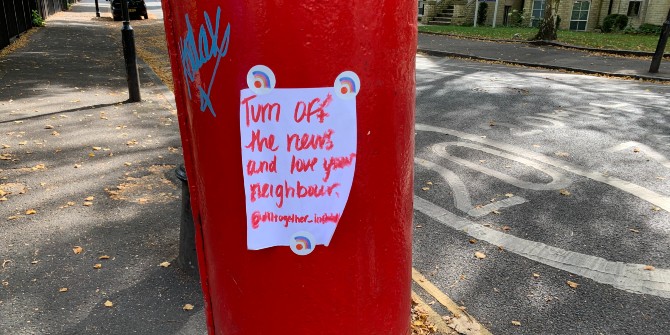Levels of wellbeing in the UK are now at their lowest since records began, with women, ethnic minority groups and key workers suffering particular psychological distress. Paul Dolan (LSE) and his co-authors outline the findings of a new report.
The COVID-19 health pandemic is having a major impact on our lives. Very little is known, however, about the effects of the policy responses on people’s wellbeing. We estimate the wellbeing costs of COVID-19 and social distancing measures by looking at the impacts of the pandemic on the mental health and wellbeing of people in the UK between 9 and 19 April 2020 using a large survey with nationally representative quotas.

The key findings are as follows:
• Across a range of indicators, levels of wellbeing and psychological distress are substantially worse in the April 2020 survey period than they were during March/April in 2019. This pattern is consistent across all regions in the UK, between men and women, across all age groups and across different ethnic groups.
• In fact, levels of all measures of wellbeing are at the lowest they have ever been since records began in the UK.
• The UK population is suffering from high levels of psychological distress and the nation as a whole is just under the threshold for psychiatric morbidity as measured by the GHQ-12 (General Health Questionnaire) instrument. Psychological distress is particularly high for women, ethnic minority groups and key workers.
• Key workers are currently reporting higher levels of life satisfaction, but also higher levels of anxiety than other workers.
• The negative association between COVID-19 and wellbeing is worse for women than for men, and for ethnic minority groups on some measures.
• The effect size is around twice the magnitude of the impact of redundancy (in normal times) on wellbeing.
• We calculate an indicative monetary value for the total wellbeing cost to adults in the UK to be around £2.25bn per day, or around £43 per adult per day.
• One-third of this figure represents the health-related costs and two-thirds represents the economic and social impacts on people from the social distancing measures.
It is important to note that we focus on the impacts on people’s wellbeing and do not include other costs, such as those related to COVID-19 deaths, and hence our figures should be seen as a lower bound estimate of the impact on society. When using the figures in this report the stated caveats should be properly accounted for.
This is an extract from The Wellbeing Costs of Covid-19 in the UK, an independent research report by Simetrica-Jacobs and the London School of Economics and Political Science.





